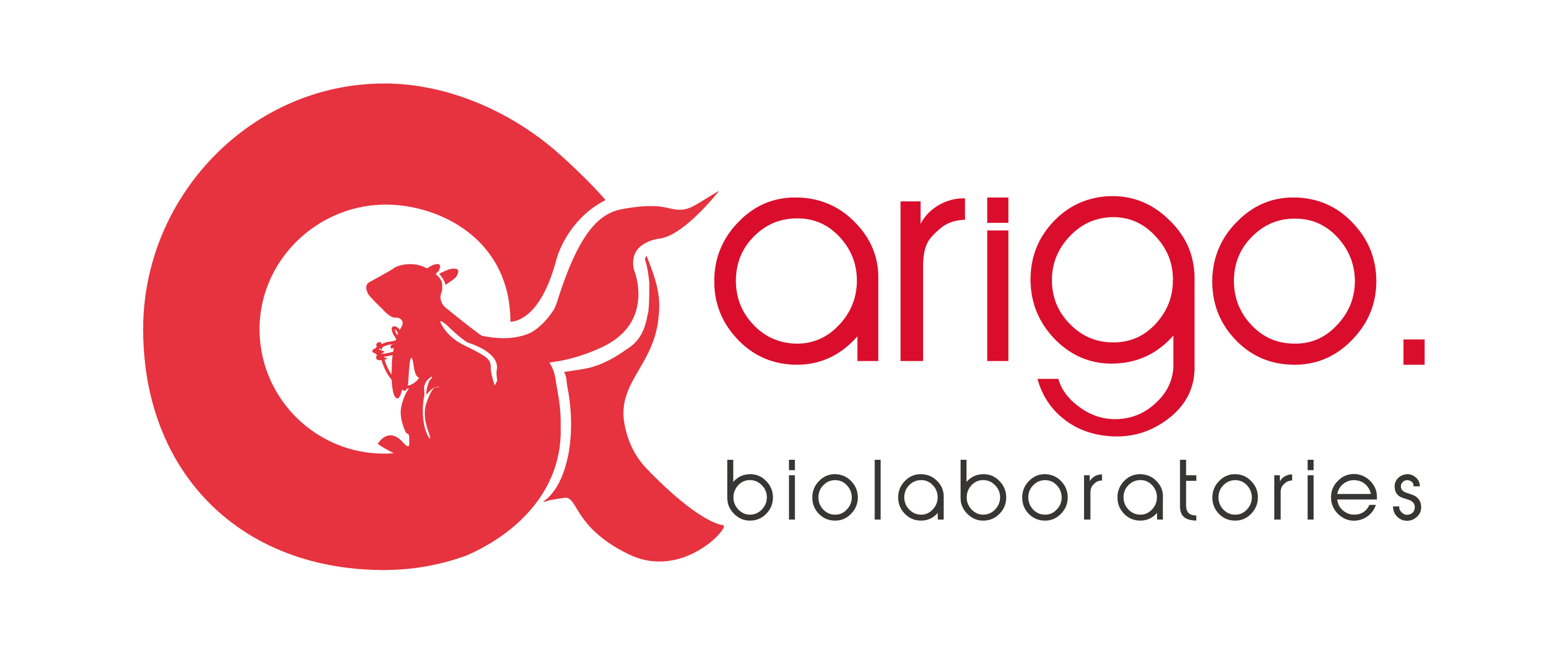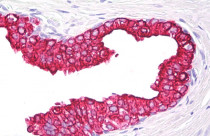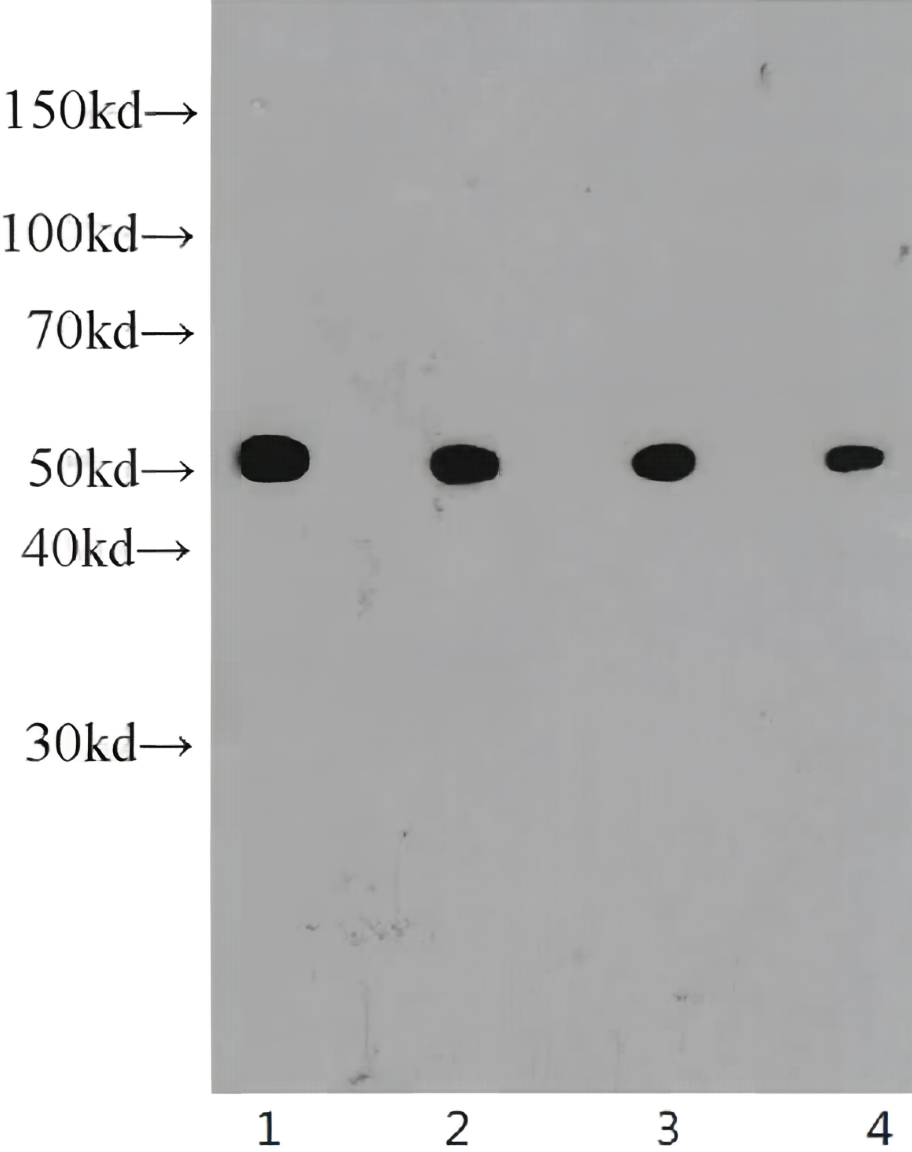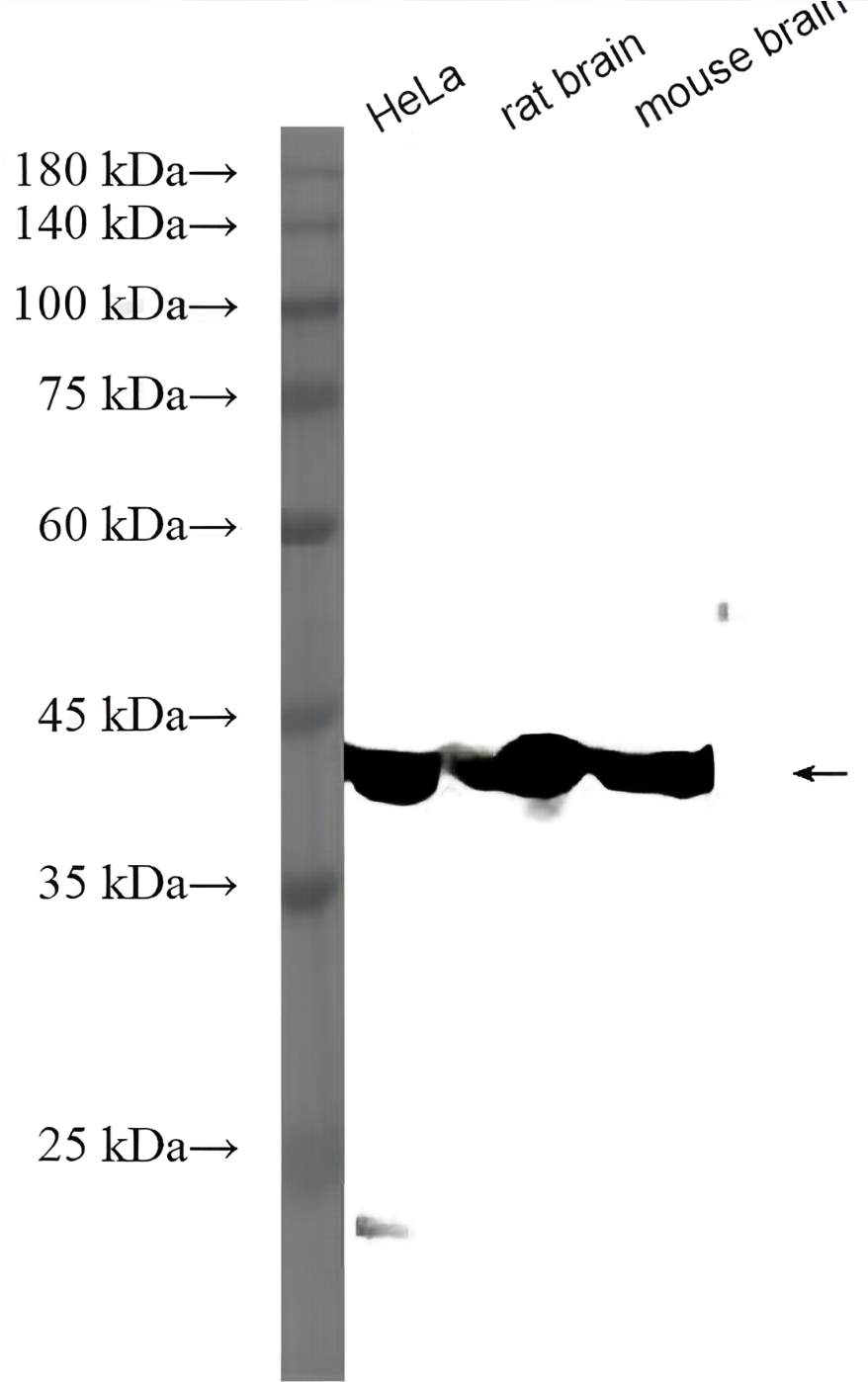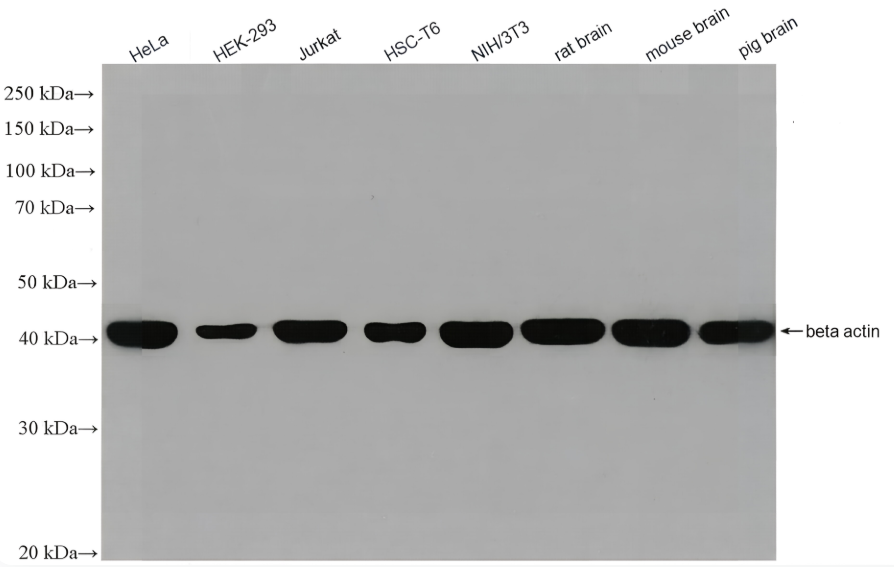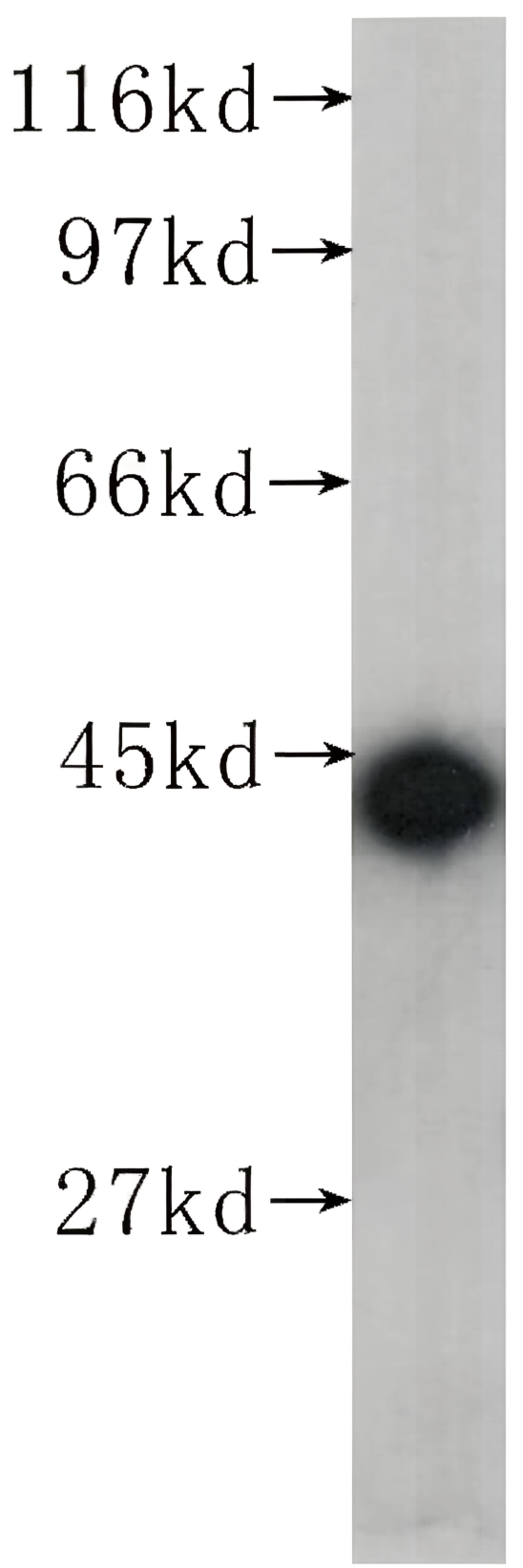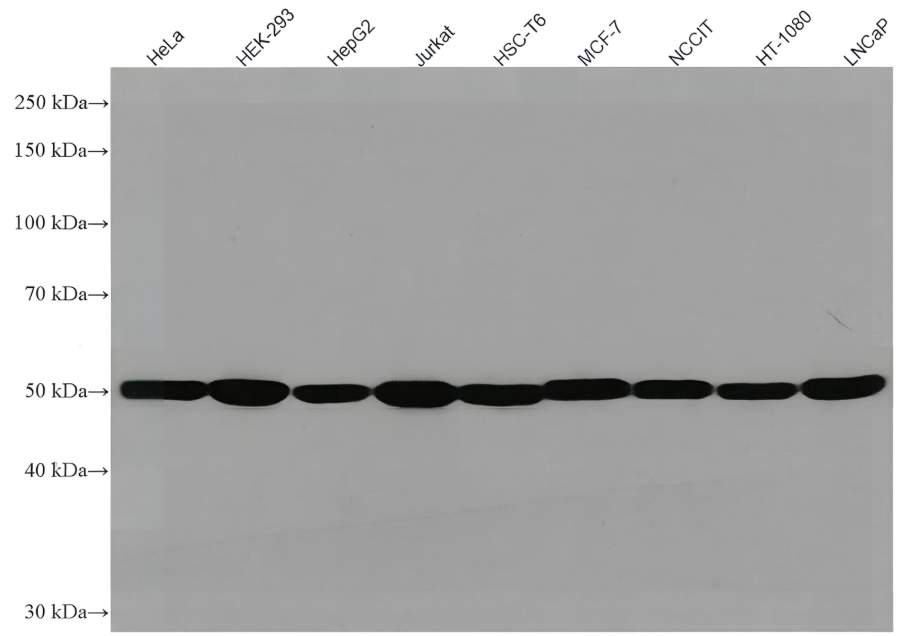anti-Cytokeratin 5 + 8 antibody [C-50]
CAT.NO. : ARG62980
US$ Please choose
US$ Please choose
Size:
Trail, Bulk size or Custom requests Please contact us
*产品价格可能会有所调整,请以品牌方官网实时更新的价格为准,以确保准确性。
概述
| 产品描述 | Mouse Monoclonal antibody [C-50] recognizes Cytokeratin 5 + 8 |
|---|---|
| 反应物种 | Hu, Ms, Rat, Bov, Dog, Hm, Pig, Sheep |
| 不反应物种 | Chk, Xenopus laevis |
| 应用 | ICC/IF, IHC-P, IP, WB |
| 特异性 | The antibody C-50 reacts with cytokeratin peptides 5 and 8 (58 and 53 kDa). Cytokeratins are members of intermediate filaments subfamily of intracellular proteins represented in epithelial tissues. |
| 宿主 | Mouse |
| 克隆 | Monoclonal |
| 克隆号 | C-50 |
| 同位型 | IgG1 |
| 靶点名称 | Cytokeratin 5 + 8 |
| 抗原 | Cytoskeleton preparation from HeLa cells. |
| 偶联标记 | Un-conjugated |
| 別名 | DDD1; 58 kDa cytokeratin; Keratin, type II cytoskeletal 5; EBS2; Keratin-5; Cytokeratin-5; CK5; KRT5A; K5; CK-5; Type-II keratin Kb5; DDD |
应用说明
| 应用建议 |
| ||||||||||
|---|---|---|---|---|---|---|---|---|---|---|---|
| 应用说明 | * The dilutions indicate recommended starting dilutions and the optimal dilutions or concentrations should be determined by the scientist. | ||||||||||
| 阳性对照 | IHC-P: Human prostate |
属性
| 形式 | Liquid |
|---|---|
| 纯化 | Purified from ascites by protein-A affinity chromatography. |
| 纯度 | > 95% (by SDS-PAGE) |
| 缓冲液 | PBS (pH 7.4) and 15 mM Sodium azide |
| 抗菌剂 | 15 mM Sodium azide |
| 浓度 | 1 mg/ml |
| 存放说明 | For continuous use, store undiluted antibody at 2-8°C for up to a week. For long-term storage, aliquot and store at -20°C or below. Storage in frost free freezers is not recommended. Avoid repeated freeze/thaw cycles. Suggest spin the vial prior to opening. The antibody solution should be gently mixed before use. |
| 注意事项 | For laboratory research only, not for drug, diagnostic or other use. |
生物信息
| 数据库连接 | |
|---|---|
| 基因名称 | KRT5 |
| 全名 | keratin 5, type II |
| 背景介绍 | Cytokeratin 5 is a member of the keratin gene family. The type II cytokeratins consist of basic or neutral proteins which are arranged in pairs of heterotypic keratin chains coexpressed during differentiation of simple and stratified epithelial tissues. This type II cytokeratin is specifically expressed in the basal layer of the epidermis with family member KRT14. Mutations in these genes have been associated with a complex of diseases termed epidermolysis bullosa simplex. The type II cytokeratins are clustered in a region of chromosome 12q12-q13. [provided by RefSeq, Jul 2008] |
| 研究领域 | Signaling Transduction antibody |
| 预测分子量 | 62 kDa |
检测图片 (2)
ARG62980 anti-Cytokeratin 5 + 8 antibody [C-50] IHC-P image
Immunohistochemistry: Paraffin-embedded Human prostate tissue stained with ARG62980 anti-Cytokeratin 5 + 8 antibody [C-50].
ARG62980 anti-Cytokeratin 5 + 8 antibody [C-50] WB image
Western blot: MCF-7 whole cell lysate stained with ARG62980 anti-Cytokeratin 5 + 8 antibody [C-50].
Lane 1: MW standard
Lane 2: Immunostaining with ARG62980
Lane 3: Immunostaining with Isotype Mouse IgG1 control.
参考文献
克隆号文献
 New Products
New Products




![anti-Cytokeratin 5 + 8 antibody [C-50]](/upload/image/products/C-50_1_210_205.jpg)
![anti-Cytokeratin 5 + 8 antibody [C-50]](/upload/image/products/C-50_2.jpg)
![anti-Cytokeratin 5 + 8 antibody [C-50]](/upload/image/products/C-50_1.jpg)
